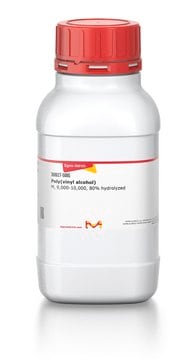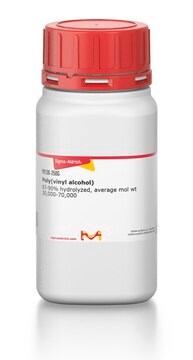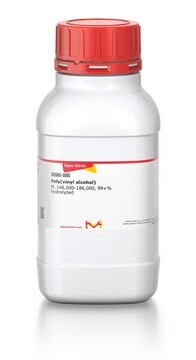901034
Polyvinyl alcohol (PVA) blend printing filament
1.75 mm
Szinonimák:
AtlasSupport™, PVA blend filament
About This Item
Javasolt termékek
Minőségi szint
leírás
Filament roundness: ≥95%
Melt flow rate: 2.3 g/10 min
Melt temperature: ±163 °C
Print temperature: ±180-205 °C
Specific gravity: 1.22 g/cc
Spool Hub Diameter: 52 mm
Spool Size (DxH): 200 mmx55 mm
Vicat softening temperature: ± 60.2 °C
Forma
solid (filament)
szín
orange, natural
átmérő
1.75 mm±0.05 mm (filament diameter)
InChI
1S/C2H4O/c1-2-3/h2-3H,1H2
Nemzetközi kémiai azonosító kulcs
IMROMDMJAWUWLK-UHFFFAOYSA-N
Looking for similar products? Látogasson el ide Útmutató a termékösszehasonlításhoz
Related Categories
Általános leírás
Alkalmazás
Jogi információk
Tárolási osztály kódja
11 - Combustible Solids
WGK
WGK 1
Lobbanási pont (F)
49.5 °F - closed cup
Lobbanási pont (C)
9.7 °C - closed cup
Válasszon a legfrissebb verziók közül:
Már rendelkezik ezzel a termékkel?
Az Ön által nemrégiben megvásárolt termékekre vonatkozó dokumentumokat a Dokumentumtárban találja.
Az ügyfelek ezeket is megtekintették
Active Filters
Tudóscsoportunk valamennyi kutatási területen rendelkezik tapasztalattal, beleértve az élettudományt, az anyagtudományt, a kémiai szintézist, a kromatográfiát, az analitikát és még sok más területet.
Lépjen kapcsolatba a szaktanácsadással







